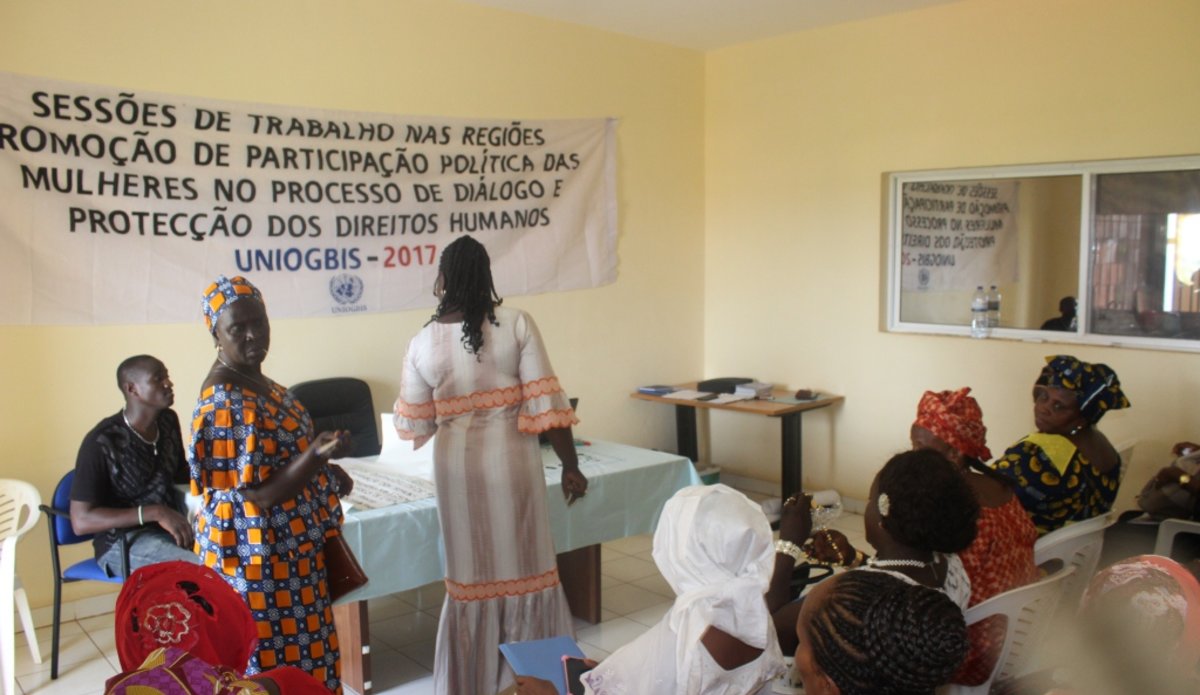Inspired by training on political participation, women from Bafatá region promise not to vote in political parties without women on the lists
The pledge was made at the end of the meeting to promote women's political participation in the process of inclusive dialogue and protection of human rights, which took place between 30 and 31 August in Bafatá. The meeting was promoted by the Committee of Women Parliamentarians of Guinea-Bissau in partnership with UNIOGBIS Gender Unit.
Umo Bari Djaló, on behalf of the participants, presented their recommendations to parliament: "Approval of the quota law by political parties with parliamentary seats; Demand the inclusion of women at the top of the electoral roll; Women on electoral lists for the Bafata electoral circle must be from the region."
The meeting was attended by 37 women from the six sectors that are part of the Bafatá region, deputies in the nation, members of the women's platform and journalists.
Ms. Suzi Barbosa, Coordinator of the Committee of Women Parliamentarians of Guinea-Bissau, said that the Guinean parliament is committed to increasing women political participation in the country. "Guinea-Bissau has a population mostly made up of women and it is very sad to see that they do not have the same opportunities as men, especially in decision-making positions, if they had perhaps the country's situation in terms of stability would have been different”.
According to that MP, in Guinea Bissau women represent 10 percent of the active population in political life, and 25 percent of public positions.
Judith Mirembe, head of UNIOGBIS Gender Section, said she expected that at the end of the meeting, women are "more confident and willing to participate in the dialogue process, participate in the political arena, in governance and hopefully we will have more exemplary women in society".
 UN
UN





